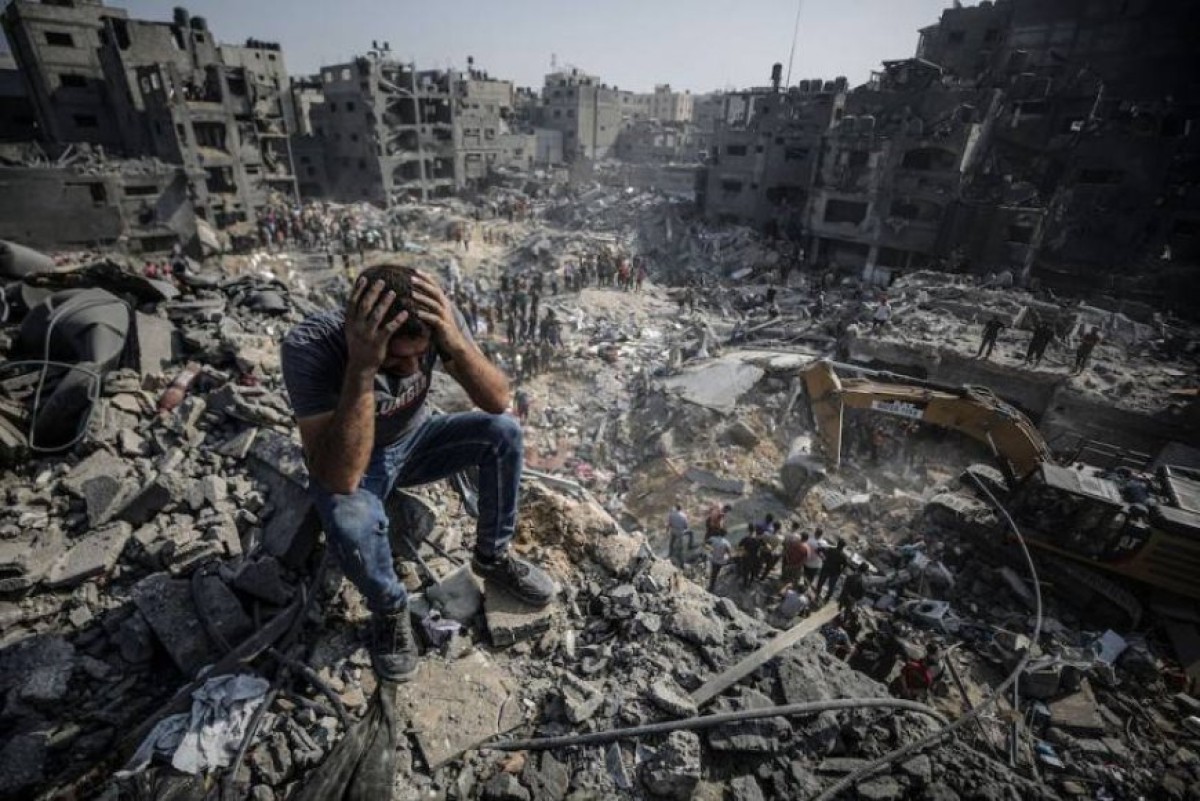 156
156
Amnesty International Calls for War Crimes Investigation Amidst Devastating Israeli Assault on Gaza
In a harrowing report released today, Amnesty International has accused Israeli forces of committing war crimes during a relentless assault on Gaza between October 7 and October 12, which resulted in the loss of entire Palestinian families and widespread destruction of civilian infrastructure. Comprehensive report reveals indiscriminate attacks and mass civilian casualties, raising urgent calls for international intervention.
By Pazooki
Amnesty International Reports Mass Civilian Casualties in Israeli Air Strikes
In what is being described as a catastrophic escalation of violence, the Israeli military's intensive air bombardment campaign on the Gaza Strip has led to mass civilian casualties and the obliteration of entire family lineages, according to the latest findings by Amnesty International. The human rights organization has documented a series of unlawful attacks, including those that failed to differentiate between military targets and civilian areas, potentially constituting war crimes. Agnès Callamard, Secretary General of Amnesty International, has condemned the Israeli forces' actions, stating, "The Israeli military's strategy to dismantle Hamas has resulted in a shocking disregard for civilian lives. The scale of destruction, the decimation of families, and the obliteration of essential services are alarming. Gaza is on the brink of a humanitarian catastrophe, with shortages of water, medicine, fuel, and electricity." The report details five specific attacks that Amnesty International claims violated international humanitarian law. These incidents include the targeting of residential buildings, a refugee camp, a family home, and a public market, with no apparent military presence at the time of the attacks. In one of the most devastating strikes, a three-story building in the al-Zeitoun neighborhood was hit, killing 15 members of the al-Dos family, including seven children. The Palestinian Ministry of Health in Gaza has reported that since October 7, Israeli forces have launched thousands of air strikes, killing at least 3,793 people, mostly civilians, and injuring approximately 12,500. More than 1,000 bodies are reportedly still trapped beneath the rubble.
The Complex Dynamics Behind Muslim-majority Countries' Relations with Israel
The reasons why some Muslim-majority countries do not have diplomatic relations with Israel are complex and often rooted in historical, political, and ideological factors. The central issue is the long-standing Israeli-Palestinian conflict. Many Muslim-majority countries support the Palestinian cause and view Israel's establishment in 1948 and its subsequent actions in the occupied territories as illegitimate. These countries often express solidarity with Palestinians, who are predominantly Muslim, in their struggle for self-determination and statehood. They view Israel's policies in the West Bank and Gaza Strip as oppressive and illegal under international law. Jerusalem, known as Al-Quds in Arabic, holds immense religious significance in Islam. It is home to the Al-Aqsa Mosque, one of the holiest sites in Islam. Some Muslim countries see any normalization of relations with Israel as a betrayal of their religious and cultural heritage. Leaders in Muslim-majority countries often consider the opinions of their own populations. Public sentiment may be strongly against establishing diplomatic ties with Israel due to the perceived injustices faced by Palestinians. Some Muslim-majority countries, like Iran, have had historically strained relations with Israel due to events like the Iranian Revolution in 1979, which resulted in the establishment of an Islamic republic with anti-Israel rhetoric. Israel's involvement in conflicts in the region, such as the Lebanese Civil War and its ongoing tensions with Hezbollah in Lebanon, have contributed to strained relations with certain Muslim-majority countries. The Arab League, an organization of Arab countries, has traditionally maintained a stance of non-recognition of Israel until a comprehensive and just solution to the Palestinian issue is achieved.
The international community is now faced with the critical task of responding to these allegations. Amnesty International is advocating for the urgent expedition of the International Criminal Court's ongoing investigation into potential war crimes. The organization emphasizes that without justice and the dismantling of what it describes as Israel's system of apartheid against Palestinians, the cycle of violence and civilian suffering is likely to continue unabated.
 156
156
Comment
Post a comment for this article